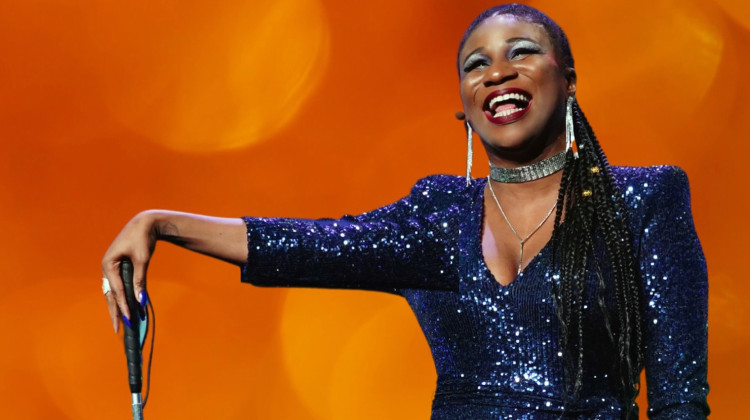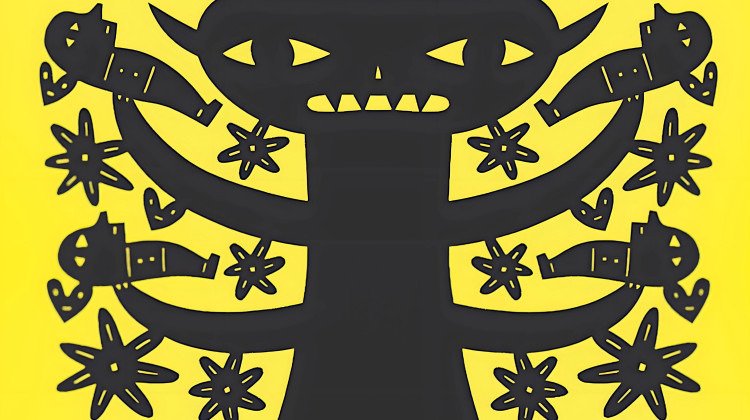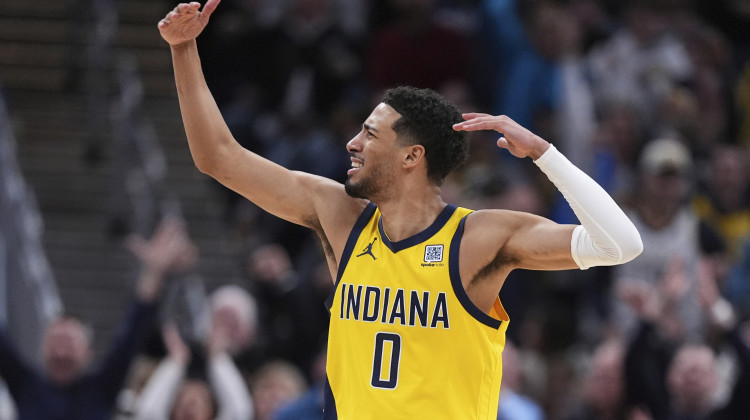
Lachi’s work has been recognized by the New York Times, Billboard, and USA Today, who named her one of 2024’s Women of the Year.
Courtesy of LachiBorn legally blind, the pianist and vocalist Lachi has used her voice to advocate for disability rights in the music industry.
In 2021 Lachi founded RAMPD, Recording Artists and Music Professionals with Disabilities. RAMPD is an advocacy group dedicated to amplifying disability culture and promoting disability inclusion in the music industry.
Lachi’s work has been recognized by the New York Times, Billboard, and USA Today, who named her one of 2024’s Women of the Year.
Lachi will perform in Indianapolis March 1 at the Schrott Center for the Arts. WFYI's Kyle Long spoke to Lachi to find out how her passion for music first connected to her work as a disability activist.
This transcript has been edited for style and clarity.
Lachi: I was recognizing that my disability was hindering my music ability to grow in my own career, but that it wasn't my disability that was actually the problem. It was really the fact that I wasn't accommodated, and that I was afraid to ask for those accommodations.
I started looking, actively looking for other music professionals with disabilities, and I asked them, 'What was the real, actual problem?' Everybody had a myriad of answers, but the main answer kept being isolation. I thought to myself, 'How are 50 of us isolated?' So let's just get together. Honestly, that was the beginning of RAMPD.
Kyle Long: One of Lachi's biggest projects with RAMPD is a collaboration with the Recording Academy to make the Grammy Awards more accessible.
Lachi: We got American Sign Language interpreters onto the red carpet. We're very excited about this because it makes for viral moments. We'll have a celebrity like a Paris Hilton or Cynthia Erivo, have a sign language interpreter while they're speaking to press, while they're doing their Grammy live pre-show interviews on the red carpet, et cetera.
It showcases sign language. It allows for accessibility for deaf viewers to see what's going on. But beyond that, we've worked and consulted with the Grammys to get ramps throughout the media center and the backstage and all in areas. But on the flip side, we try to get as many people onto the board with disabilities.
At this point, we have six members on the board and on board committees. With an organization that high up and that powerful, though, that's a lot.
Long: I asked Lachi if she was concerned that the progress she's made with RAMPD could be undone by the current presidential administration. Trump has targeted DEI programs that assist Americans with disabilities.
Lachi: You know, at the end of the day, we are resilient. And I think the folks who are the most resilient are those who work to navigate and thrive in the margins, everything from the LGBTQ community, the trans community, the disability community, the immigrant community, the Black community, and those who are intersectioned.
This is a tough pill to swallow for many, but at the end of the day, it's been tough. I think if I could give anybody some words of solace, it's that a lot of things that are happening are distraction, and I recognize that people are being hurt, medical this and that's are being taken away. My people are being hurt, but a lot of this is distraction. We're being pit against each other as a distraction.
We need to work on coming together with our communities and power building. That's what I do every day at my team, team Lachi. That's what we do every day at RAMPD, and I am here to give kudos, flowers and my support to anyone who is working in the margins to community build and power build through these difficult times.
This interview originally aired on WFYI's Cultural Manifesto.
 DONATE
DONATE






 Support WFYI. We can't do it without you.
Support WFYI. We can't do it without you.